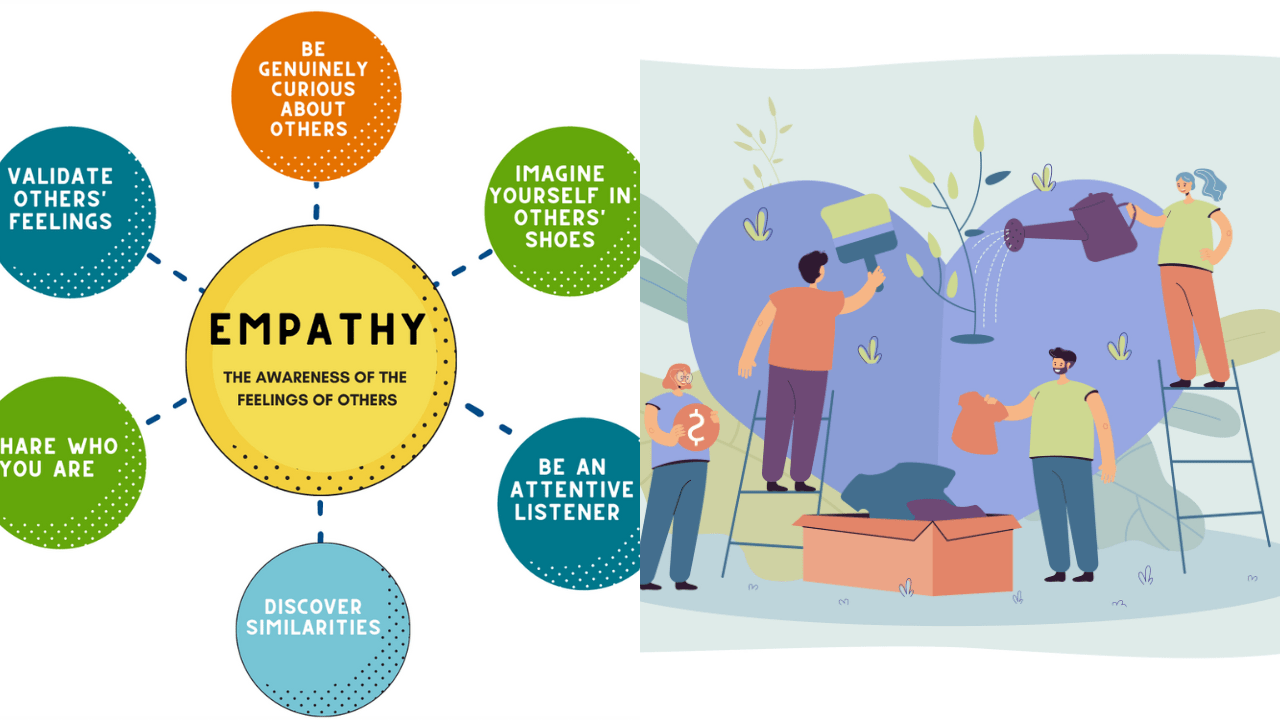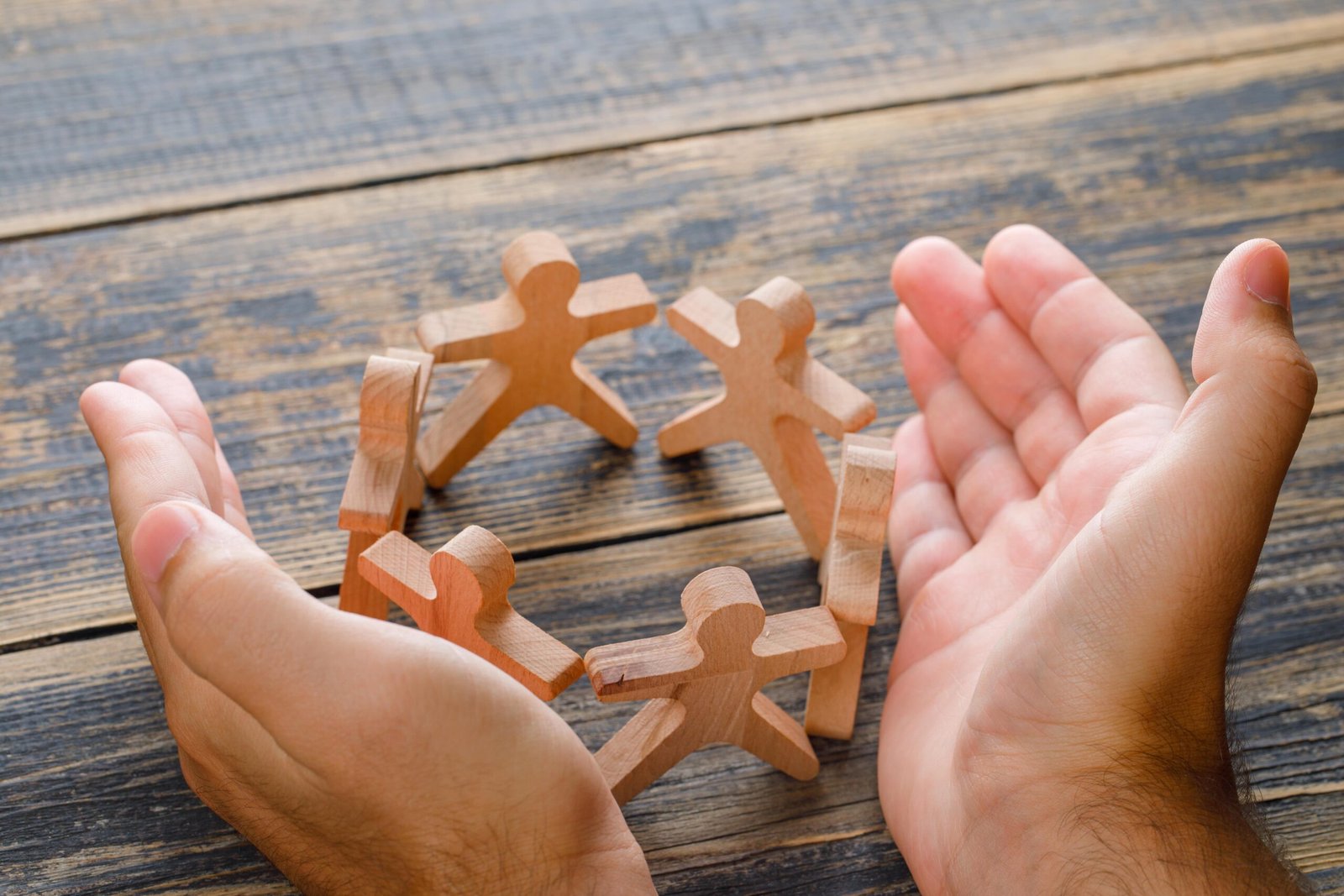Empathy, the ability to understand and share the feelings of others, is often hailed as a cornerstone of humanity. It’s more than just putting oneself in another’s shoes; it’s about truly grasping their perspective, emotions, and experiences. In today’s rapidly changing world, where division and conflict seem all too prevalent, the power of empathy stands as a beacon of hope. It has the potential to bridge divides, foster connection, and catalyze positive change on a global scale.

What Does Empathy Mean? How Empathy Can Change the World?
At its core, empathy is about recognizing the shared humanity that binds us all together. When we empathize with others, we acknowledge their struggles, joys, fears, and aspirations as inherently valid and deserving of respect. This acknowledgment lays the foundation for meaningful dialogue and collaboration, transcending barriers of culture, nationality, and ideology.
One of the most profound ways in which empathy can change the world is by promoting understanding and reconciliation in times of conflict. Consider, for example, the Truth and Reconciliation Commission in South Africa, which played a pivotal role in healing the wounds of apartheid by providing a platform for victims and perpetrators to share their stories and seek forgiveness. Through empathetic listening and mutual acknowledgment of pain, both sides were able to move forward towards a more just and unified society.
Empathy also plays a crucial role in fostering compassion and solidarity in the face of adversity. In times of natural disasters, humanitarian crises, or personal tragedies, acts of empathy abound as people come together to support one another. Whether it’s offering a helping hand, lending a listening ear, or simply offering a word of encouragement, these small acts of empathy have the power to uplift spirits and restore faith in humanity.
Moreover, empathy serves as a catalyst for social change by driving individuals and communities to confront systemic injustices and advocate for marginalized groups. When we empathize with those who are oppressed or marginalized, we are compelled to take action to address the root causes of their suffering. From civil rights movements to LGBTQ+ rights advocacy, empathy has been the driving force behind many transformative social movements throughout history.

On a personal level, cultivating empathy can lead to deeper, more meaningful relationships with others. When we take the time to understand and validate the feelings of those around us, we strengthen our bonds and create a sense of belonging. In a world where loneliness and isolation are all too common, empathy serves as a powerful antidote, fostering a sense of connection and community.
However, while the power of empathy is undeniable, it is not always easy to practice. In a fast-paced, increasingly polarized world, it can be tempting to retreat into our own echo chambers, where our perspectives are reinforced and our biases go unchallenged. Yet, it is precisely in these moments of discomfort and uncertainty that empathy is needed most. By stepping outside of our comfort zones and actively seeking to understand perspectives different from our own, we can cultivate a more inclusive and compassionate society.
In conclusion, the power of empathy is a potent force for positive change in the world. By fostering understanding, compassion, and connection, empathy has the potential to bridge divides, promote social justice, and transform lives. As individuals and as a society, let us embrace empathy as a guiding principle and harness its transformative potential to create a more just, equitable, and empathetic world for all.
Read More:

The Psychology of Love: Why Valentines Day Matters More Epic Than You Think
Discover the psychology of love and why Valentines Day is more important than you think. Learn how love impacts the brain, strengthens relationships, and boosts

Premier League Highlights: Arsenal Humiliate Man City 5-1, Spurs and Palace Secure Crucial Wins
Arsenal demolished Manchester City 5-1 in a statement premier league highlights win, reigniting their title hopes. Meanwhile, Crystal Palace stunned Man United 2-0, and Tottenham

How Budget 2025 Impacts the Indian Middle-Class: Major Tax Benefits and Glaring Omissions
Budget 2025 offers major tax relief to the middle class, including zero tax on incomes up to ₹12 lakh. However, it misses out on incentives

Degrees vs Employability: Why “Highly Qualified Degree Holders” Struggle to Find Jobs While “Less Qualified Individuals” Get Hired Faster!
Many highly qualified individuals struggle to secure jobs, while less qualified candidates get hired quickly. This Degrees vs Employability paradox is caused by employer preferences,

The Power of Mindset: Why Looking Poor Doesn’t Make You Poor, but Thinking Poor Does!
Discover why looking poor doesn’t define your wealth but thinking poor does. Learn the power of mindset and how a growth-oriented mindset can lead to

Overthinking: How It’s Damaging Today’s Youth – Causes and Cure in 2025
Understanding how overthinking is silently damaging today’s youth, from its causes rooted in societal pressure and social media to its long-term effects on mental health.
